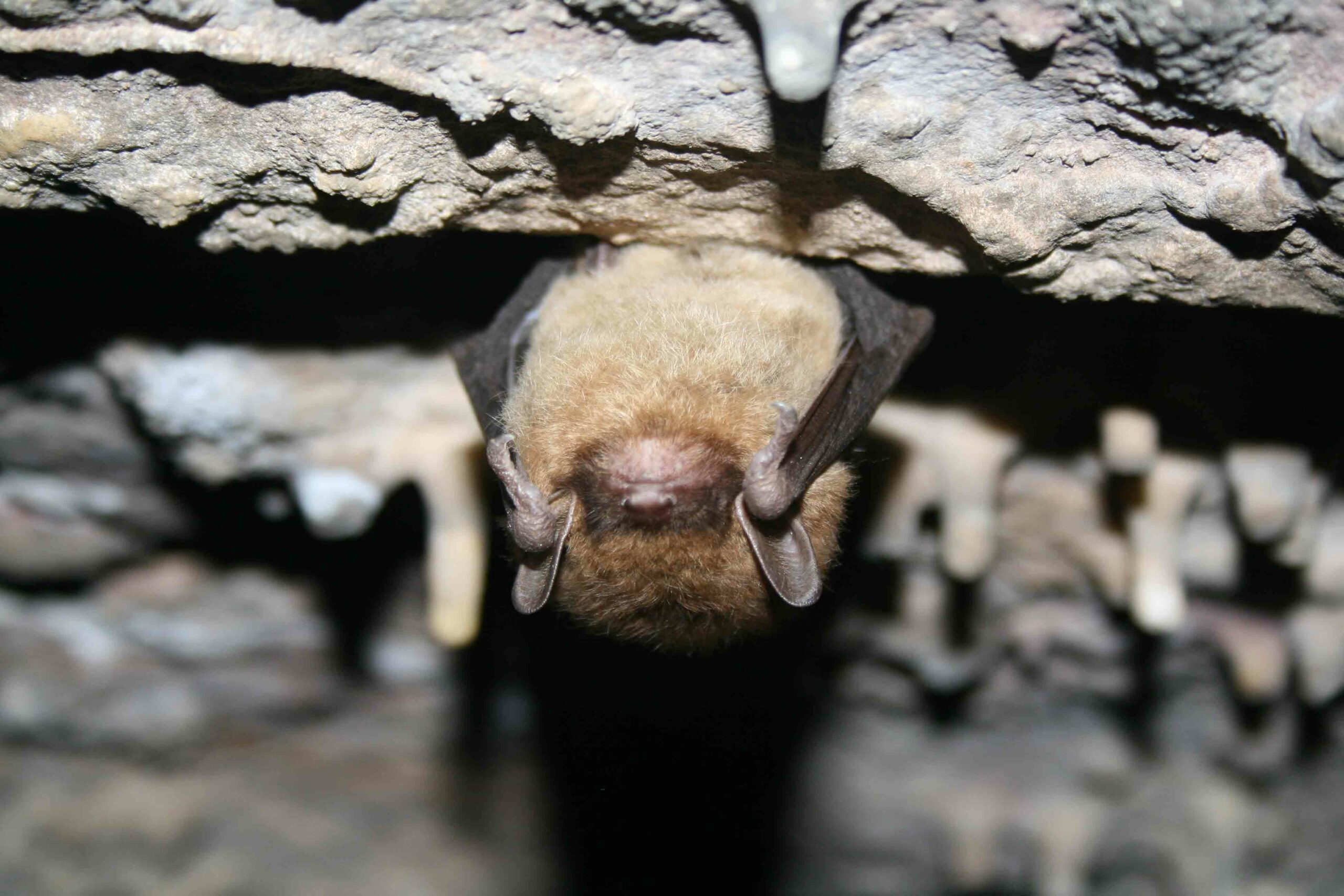Populations of the little brown bat in Tennessee have taken such a hit in the last few decades that the little brown bat has been designated as a species of greatest conservation need. Recovering America’s Wildlife Act can help these bats and other endangered species.
Recovering America’s Wildlife Act needed to restore little brown bat populations
The little brown bat (Myotis lucifugus) is a mouse-eared microbat found in Tennessee and across North America.
Distinguished by their brown coat, these bats hibernate in colonies of thousands and are the longest-living mammal of their size.
The bats roost in caves, hollow trees, and on the sides of buildings during the day. At night, they use echolocation to locate prey and gorge on winged insects—working as a natural mosquito repellent.
Little brown bat populations have significantly decreased in recent years and Tennessee is no exception.
White-nose syndrome, a white fungus that grows on the nose, ears, and wings, attacks the bats during hibernation. The bats use up their fat reserves trying to fend off the disease leaving them too weak to survive the rest of winter.
If one bat brings the disease into a colony of thousands, then the disease spreads like wildfire.
Populations in Tennessee have taken such a hit in the last few decades that the little brown bat has been designated as a species of greatest conservation need. It has also been petitioned for listing under the federal Endangered Species Act.
More research is needed to increase recovery and conservation efforts for this species.
Thankfully a historic piece of conservation legislation, Recovering America’s Wildlife Act, is making good traction in Congress towards passage.
The Act will allocate millions in funding annually to conservation efforts, including in Tennessee.
With adequate and recurring funding, research projects aimed at recovering the little brown bat and other species can make much-needed progress.
>>TAKE ACTION: Use Your Voice to Help the Little Brown Bat and Urge Congress to Support Recovering America’s Wildlife Act.
Feature photo by U.S Fish and Wildlife Service/Ann Froschauer




